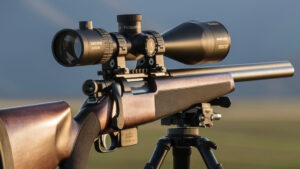Yes, gold is detected by metal detectors due to its conductivity properties. Metal detectors can identify gold objects easily.
Gold is a highly conductive metal, making it easily detectable by metal detectors. This valuable metal is commonly found in various forms, from jewelry to gold nuggets, and can be accurately pinpointed using metal detecting technology. Gold prospectors and treasure hunters often rely on metal detectors to locate hidden gold deposits and artifacts.
The ability of metal detectors to detect gold makes them an essential tool for individuals searching for this precious metal.
Introduction To Gold Detection
The allure of gold has captured human imagination for centuries. From ancient times to modern day, people have searched for the precious metal for its beauty, rarity, and value. But can gold be detected by a metal detector? Common misconceptions about metal detectors suggest that they can detect any metal, including gold. However, this is not entirely true.
While metal detectors can detect gold, it largely depends on the type of metal detector being used and the size and purity of the gold. For example, a metal detector with a higher frequency is better suited for detecting smaller gold nuggets, while a lower frequency is better suited for detecting larger gold deposits.
Additionally, the purity of the gold can affect its detectability. Gold alloys, which are metals mixed with gold, can make it more difficult to detect. However, pure gold is easier to detect as it is a better conductor of electricity.
| Type of Metal Detector | Gold Detection Capability |
|---|---|
| Very Low Frequency (VLF) Detectors | Suitable for detecting small gold nuggets |
| Pulse Induction (PI) Detectors | Suitable for detecting larger gold deposits |
In conclusion, while metal detectors can detect gold, it largely depends on the type of metal detector being used and the size and purity of the gold. It is important to do your research and choose the right metal detector for your needs if you are searching for gold.
How Metal Detectors Work
Gold can indeed be detected by metal detectors. These devices work on the basic principles of metal detection. Metal detectors consist of a coil that produces a magnetic field. When this magnetic field comes into contact with a metal object, it generates an electric current. This current is then amplified and detected by the metal detector, alerting the user to the presence of metal.
There are different types of metal detectors available in the market. Some common types include beat frequency oscillation (BFO) detectors, very low frequency (VLF) detectors, and pulse induction (PI) detectors. Each type operates on slightly different principles but ultimately aims to detect metal objects.
When using a metal detector to search for gold, it is important to consider the specific features and capabilities of the device. Some metal detectors are specifically designed for gold prospecting and offer specialized settings to enhance detection in mineralized soils. These features can improve the chances of successfully detecting gold.
Gold’s Conductive Properties
Gold’s conductive properties make it detectable by metal detectors. The metallic characteristics of gold include its high conductivity and ability to respond to electromagnetic fields. These properties allow metal detectors to identify and locate gold deposits. When gold comes into contact with a metal detector’s electromagnetic field, it creates a distinct signal that can be differentiated from other metals. This makes it possible for prospectors and hobbyists to use metal detectors in the search for gold. Gold’s conductive nature plays a crucial role in enabling metal detectors to identify and distinguish it from other metals, making it a valuable tool in gold prospecting and mining.
Challenges In Detecting Gold
Gold detection using a metal detector poses several challenges. One of the main obstacles is interference from mineralized soils, which can affect the accuracy of the detection. These soils contain minerals that emit signals similar to those emitted by gold, making it difficult to distinguish between the two. Moreover, the size and depth of the gold can also impact the detection process. Smaller gold particles are harder to detect as they produce weaker signals, while larger gold nuggets can be detected at greater depths. This means that the sensitivity and capabilities of the metal detector play a crucial role in successfully detecting gold.
Optimizing Gold Detection
When optimizing gold detection, it is essential to adjust the settings of the metal detector. Use a low discrimination level and a high sensitivity setting to detect small gold nuggets. Ground balancing is crucial for successful gold hunting, as it helps the detector ignore mineralized soil. Conducting a thorough research on the specific metal detector model is important to understand its optimal settings for gold detection. Additionally, using smaller search coils can improve the detector’s ability to locate gold in highly mineralized areas. Moreover, frequent calibration of the detector is recommended to ensure accurate gold detection.
Metal Detectors Specifically For Gold
Discover specialized metal detectors designed specifically for gold detection. These detectors are optimized to detect even the smallest gold nuggets.
| Gold Detection by Metal Detector: |
| Gold-specific detectors are designed to detect gold with precision. |
| Features include higher frequency and advanced ground balance settings. |
| Top models like Minelab GPZ 7000 offer cutting-edge technology. |
Field Reports: Success Stories
Metal detectors have successfully detected gold in field reports, showcasing their effectiveness in locating precious metals. These success stories highlight the reliability of metal detectors in finding gold, making them valuable tools for treasure hunters and prospectors.
| Many gold prospectors have shared exciting stories of successful metal detecting adventures. |
| They have found significant amounts of gold and experienced life-changing moments. |
| These discoveries have not only brought financial gain but also a sense of accomplishment. |
| For some, the impact of finding gold goes beyond material wealth. |
Legal And Ethical Considerations
Metal detectors are commonly used to detect gold, but there are legal and ethical considerations to keep in mind. It is important to understand the regulations surrounding the use of metal detectors, as well as the potential impact on cultural heritage sites and the environment.
Respecting these considerations ensures responsible and ethical detection of gold.
| When using a metal detector for gold, it’s crucial to follow regulations |
| Responsible metal detecting involves ethical practices to protect the environment. |
Frequently Asked Questions
Q: Can A Metal Detector Detect Gold?
A: Yes, metal detectors can detect gold. However, not all metal detectors are created equal. Some are specifically designed to detect gold, while others are not. It is important to choose a metal detector that is sensitive enough to detect small gold nuggets.
Q: What Type Of Metal Detector Is Best For Finding Gold?
A: The best type of metal detector for finding gold is a high-frequency VLF or pulse induction detector. These detectors are designed to detect small gold nuggets, even in highly mineralized soil. They are also sensitive enough to detect gold at deeper depths.
Q: What Factors Affect The Ability Of A Metal Detector To Detect Gold?
A: The ability of a metal detector to detect gold is affected by several factors, including the size of the gold nugget, the depth at which it is buried, and the type of soil or mineralization in the area. High mineralization can make it difficult for a metal detector to detect gold.
Q: Can A Metal Detector Differentiate Between Gold And Other Metals?
A: Yes, some metal detectors are designed to differentiate between different types of metal. However, this feature is not always reliable and can be affected by factors such as the size and shape of the metal object. It is always best to confirm the presence of gold through further testing.
Conclusion
Metal detectors can detect gold depending on its size and composition. Factors such as the detector’s technology and the gold’s depth also play a crucial role. Understanding these nuances can help enthusiasts and professionals make the most of their metal detecting experiences.
Happy hunting!








